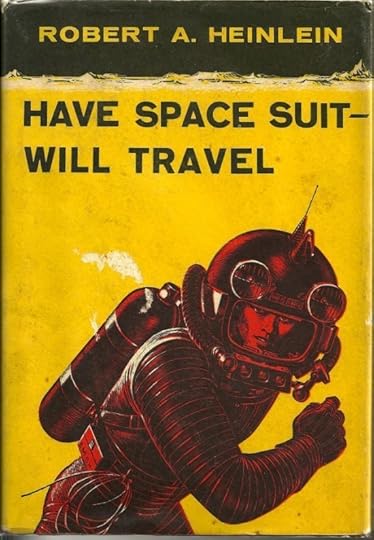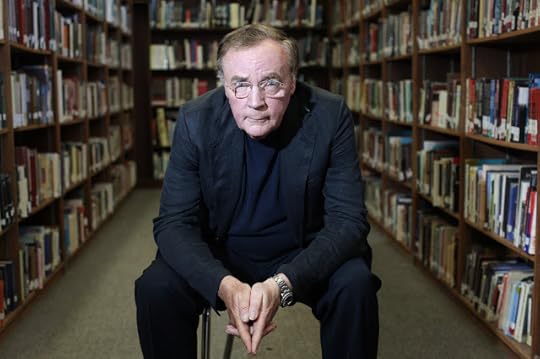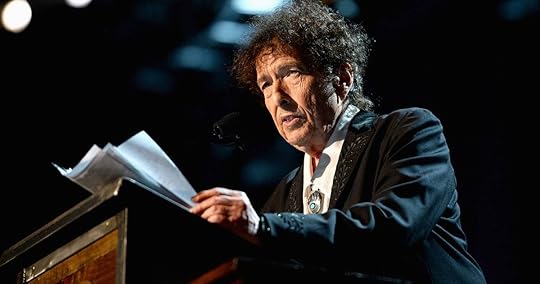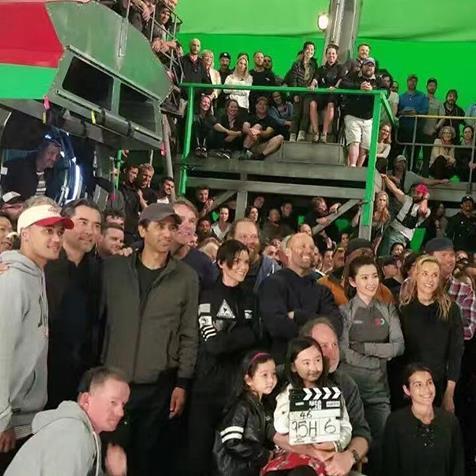Kenneth Atchity's Blog, page 146
January 14, 2017
Sci-Fi Icon Robert Heinlein Lists 5 Essential Rules for Making a Living as a Writer
 In his 1947 essay “On the Writing of Speculative Fiction,” Heinlein refers to these “two types” of science fiction as “the gadget story and the human interest story.” The latter kind of story, writes Heinlein “stands a better chance with the slicks than a gadget story does” because it has wider appeal. This advice sounds rather utilitarian, doesn’t it? What about passion, inspiration, the muse? Eh, you don’t have time for those things. If you want to be successful like Robert Heinlein, you’ve got to write stories, lots of ‘em, stories people want to publish and pay for, stories people want to read.
In his 1947 essay “On the Writing of Speculative Fiction,” Heinlein refers to these “two types” of science fiction as “the gadget story and the human interest story.” The latter kind of story, writes Heinlein “stands a better chance with the slicks than a gadget story does” because it has wider appeal. This advice sounds rather utilitarian, doesn’t it? What about passion, inspiration, the muse? Eh, you don’t have time for those things. If you want to be successful like Robert Heinlein, you’ve got to write stories, lots of ‘em, stories people want to publish and pay for, stories people want to read.Heinlein spends the bulk of his essay advising us on how to write such stories, with a proviso, in an epigram from Rudyard Kipling, that “there are nine-and-sixty ways / Of constructing tribal lays / And every single one of them is right.” After, however, describing in detail how he writes a “human interest” science fiction story, Heinlein then gets down to business. He assumes that we can type, know the right formats or can learn them, and can spell, punctuate, and use grammar as our “wood-carpenter’s sharp tools.” These prerequisites met, all we really need to write speculative fiction are the five rules below:
1. You must write.
2. You must finish what you start.
3. You must refrain from rewriting except to editorial order.
4. You must put it on the market.
5. You must keep it on the market until sold.
You might think Heinlein has lapsed into the language of the realtor, not the writer, but he is deadly serious about these rules, which “are amazingly hard to follow—which is why there are so few professional writers and so many aspirants.” Anyone who has tried to write and publish fiction knows this to be true. But what did Heinlein mean in giving us such an austere list? For one thing, as he notes many times, there are perhaps as many ways to write sci-fi stories as there are people to write them. What Heinlein aims to give us are the keys to becoming professional writers, not theorists of writing, lovers of writing, dabblers and dilettantes of writing.
Award-winning science fiction writer Robert J. Sawyer has interpreted Heinlein’s rules with commentary of his own, and added a sixth: “Start Working on Something Else.” Good advice.
Read more

Published on January 14, 2017 00:00
January 10, 2017
10 Questions to Ask Yourself if You Want to Write a Book

1. Publisher or self-publish: The publishing world has changed dramatically in recent years and the Internet has made self-publishing considerably easier. If you self-publish you have full control of your book, but also bear all costs. A publisher is harder to secure and will have control over some decisions, but also absorbs many costs (e.g., printing, distribution, cover art) and also gains access to critical distribution channels, including identifying outlets to review your book.
2. Agent or no agent: With an agent you give a portion of your royalties to them. Literary agents work on a commission basis and are incented to find you the best deal so that their payout increases when you sell books. Though you give up some of your royalties, an agent is often your best chance to get your book proposal reviewed by a major publishing house.
3. Publicist or no publicist: Publicists bring access that is hard for many people to get on their own. They identify media outlets such as television shows, newspapers, and podcasts to bring valuable exposure to you and your book. The best publicists can cost tens of thousands of dollars and you will have to consider if their services are worth it to you.
4. What is the book's "hook": Every book needs a quick and compelling hook that captures attention. This is always needed to draw in potential readers/buyers, but also literary agents, publishers, and publicists if you go that route.
5. Who is the target audience: Don't try to pretend your book is for everyone - all books have a more targeted market. If you decide to use a publisher they will want to know exactly whom you are targeting and how big the audience is. They will also want to know how your book is different from similar books that have been written and if it has relevance to sell outside your home country. The target audience will also help you decide who to ask to "blurb" or endorse your book.
6. Write or ghost write: You would be surprised how many books are written by someone other than the stated author. Ghost writers are sought after and can make anyone come across as a gifted writer. Authors may not have time to write a book or find that a professional writer is better able to capture the voice they want to convey.
7. What is my platform: This one must be alive well before you publish your book. You must consider the best way to bring visibility to your book and contemplate platform options such as your standing as a well-known expert, your social media presence, professional speeches, access to different constituencies, etc.
8. What are my goals: Consider the reason you are writing a book to help hone your focus, especially because the outcomes are not always connected. You might want to make a lot of money but not care about getting great reviews. You way just want to build your brand by getting your name out there. You may want to achieve critical acclaim for your book even if it doesn't make a lot of money (think Indie films). Not everyone can be a NYT best selling author, but you can be pleased with the outcome if you know your goals in advance.
9. What format will the book be: You have many options. It can be hard cover, paperback, eBook, audio, small, large, etc. If you self-publish consider the costs of developing multiple formats, particularly hard cover and paperback.
10. How much time will you commit: The reality is that a book once published is there forever. In addition to the time it takes to write (or work with a ghost writer) you will also need to spend time promoting the book. You must consider you ability and willingness to travel, speak, go to book signings, and otherwise invest your time to market and sell your book.
No series of decisions is right for everyone and you must consider your particular situation and goals. One last tip: don't get too fixated on the title of your book - it often changes as the writing process progresses, especially when you have a publisher and and editor.
Read more

By David Van Rooy@dlvanrooy

Published on January 10, 2017 10:37
January 7, 2017
7 IMMEDIATE STEPS TO BECOME A BESTSELLING AUTHOR by Laurence O'Bryan

Believe!
Believing in your writing is the critical first step. If you’ve invested in your craft and worked hard at making the best book possible, take this first step. I am a bestselling mystery author. My first novel, The Istanbul Puzzle, reached #26 overall on Amazon Kindle U.S. sales in September 2016, after being published for over 3 years. It was also #1 in three crowded categories.
I put this success down to two things: a well written book in a popular genre, and online promotion using the tools we will talk about in this seven step report. Yes, I was published by Harper Collins, but they dropped me in 2013, and would never have published me if I didn’t have a blog and a Twitter account.
I self-published the latest novel in my mystery series. My recent status as a best seller is all down to diligent work online, which I will describe in this report.
The following are the key steps we recommend you undertake to use social media to help you become a best-selling author:
Define your objectives Plan how to get your online activity done, and still be able to write Set aside resources Develop personal guidelines on your use of social media Plan how your content will be generated Decide how you will monitor the results Implement Read more

Published on January 07, 2017 00:00
January 5, 2017
James Patterson Makes Good On $1M Promise To Indies

Less than 10 months from the day James Patterson swore a million-dollar promise, he has kept his word. The best-selling novelist announced he has donated about $437,000 to 81 independent bookstores — a gift that completes his plan to donate $1 million of his own money to support independent booksellers.
"We're in a juncture right now where bookstores as we have known them are at risk," he said. "Libraries as we've known them are at risk, publishers are at risk, American literature is at risk, as we've known it, and getting kids reading is at risk."
The recent gift marked the third phase of his campaign, and it brings the sum of his donations several thousand past his goal. To date this year, Patterson has donated $1,008,300 to 178 bookstores across the U.S, with no strings attached. Publishers Weekly offers a list of the indies included in the third round, and the School Library Journal details how one of them plans to use the funds.
"Here's to more parents and grandparents coming to their senses and giving their kids books —yes, books — for Christmas and other holidays," he said. "Here's to local governments waking up to the fact that bookstores and libraries are essential to our way of life. Here's to media coverage of books, booksellers, and publishers, and to a wiser, more literate America. Happy holidays to one and all!"

Published on January 05, 2017 00:00
January 3, 2017
Book News: Apple Enters A New Round In E-Book Price-Fixing Fight

In its attempt to obtain a foothold in a market long dominated by Amazon, Apple ran afoul of antitrust law.
Apple is sliding back under the judicial microscope Monday in a legal challenge that could bear big implications for the e-book market. The 2nd U.S. Circuit Court of Appeals is slated to hear the company's appeal of a verdict that found it guilty of violating antitrust law.
Last year, a federal judge ruled that Apple had knowingly facilitated a price-fixing conspiracy with the five major publishing companies: Hachette, HarperCollins, Macmillan, Penguin and Simon & Schuster. In a bid to pressure Amazon — then and now a goliath of the e-book market — Apple and these publishers had agreed to set the price of e-books higher than Amazon's preferred price. The judge denounced these agreements as collusion, rendering her verdict in no uncertain terms.
"The evidence is overwhelming that Apple knew of the unlawful aims of the conspiracy," U.S. District Judge Denise Cote wrote in her opinion. To believe Apple's case, she continued, "a fact-finder would be confronted with the herculean task of explaining away reams of documents and blinking at the obvious."
While the publishers settled their side of the case early on, Apple has vowed repeatedly to keep fighting. The latest round is expected to help clarify the legal line drawn between friendly business agreements and outright collusion.
As Philip Elmer-DeWitt notes in Fortune:
"When the Department of Justice charged Apple with conspiring to fix the price of e-books, the case was widely seen in both Silicon Valley and New York publishing circles as an error of enforcement.
"Why was Apple, a giant in its own right but a new entrant in the e-book market, being prosecuted and not that other giant, Amazon? ...
"But when District Judge Denise Cote sided with the DOJ and ruled that Apple had violated the Sherman Antitrust Act, what had been a question of enforcement became a question of law."
Although Monday's hearing is expected to last about an hour, a ruling won't be rendered for several months more. And Elmer-De Witt says a verdict against Apple could very well mean this case is headed to the Supreme Court.
Read more

Published on January 03, 2017 00:00
January 1, 2017
Happy 2017!
Published on January 01, 2017 00:00
December 30, 2016
What’s the Best Book, New or Old, You Read This Year?
 From left: Siddhartha Deb, Rivka Galchen, Alice Gregory, Zoë Heller. Credit Illustrations by R. Kikuo Johnson Siddhartha Deb:At year’s end, I’m remembering Cormac McCarthy’s “Blood Meridian.” Unflinching in its portrayal of settler colonialism and so familiar in its violence, racism and twisted masculinity, it is most memorable for me in its portrait of Judge Holden, the Devil incarnate, perched on a rock and waiting for us to pass by.
From left: Siddhartha Deb, Rivka Galchen, Alice Gregory, Zoë Heller. Credit Illustrations by R. Kikuo Johnson Siddhartha Deb:At year’s end, I’m remembering Cormac McCarthy’s “Blood Meridian.” Unflinching in its portrayal of settler colonialism and so familiar in its violence, racism and twisted masculinity, it is most memorable for me in its portrait of Judge Holden, the Devil incarnate, perched on a rock and waiting for us to pass by.Siddhartha Deb’s most recent book is “The Beautiful and the Damned: A Portrait of the New India.”
Rivka Galchen:The Italian writer Natalia Ginzburg lived through the rise of fascism, which left her widowed with three small children. Among my favorite of her works translated by Lynne Sharon Schwartz and collected in “A Place to Live: Selected Essays of Natalia Ginzburg” are “Winter in the Abruzzi” and “The Baby Who Saw Bears.”Rivka Galchen’s most recent book is “Little Labors.”
Alice Gregory:Rebecca Solnit’s “River of Shadows: Eadweard Muybridge and the Technological Wild West” is the most impressive book I read this year or maybe any year. It somehow manages to deploy the most specific and peculiar facts while telling a story that’s about everything — art, politics, history, science, philosophy. It blows my mind that one person wrote it.Alice Gregory is a contributing editor at T: The New York Times Style Magazine.
Zoë Heller:I really enjoyed Emma Cline’s debut novel, “The Girls.” Cline writes lovely, noticing sentences, and her story about the charismatic power of an evil cult leader turned out to be a not altogether inappropriate fable for 2016.Zoë Heller is the author of “Everything You Know,” “Notes on a Scandal” and “The Believers.”
 From left: Anna Holmes, Leslie Jamison, Adam Kirsch, Thomas Mallon. Credit Illustrations by R. Kikuo Johnson Anna Holmes:Colson Whitehead’s slave-narrative novel, “The Underground Railroad”: a defiant, gorgeous triumph of human imagination and empathy that can be interpreted as a commentary on the past, a reckoning with the present or a provocation of the future. (It’s probably all three.)Anna Holmes is an editorial executive at First Look Media and the editor of two books, including “The Book of Jezebel.”
From left: Anna Holmes, Leslie Jamison, Adam Kirsch, Thomas Mallon. Credit Illustrations by R. Kikuo Johnson Anna Holmes:Colson Whitehead’s slave-narrative novel, “The Underground Railroad”: a defiant, gorgeous triumph of human imagination and empathy that can be interpreted as a commentary on the past, a reckoning with the present or a provocation of the future. (It’s probably all three.)Anna Holmes is an editorial executive at First Look Media and the editor of two books, including “The Book of Jezebel.”Leslie Jamison:This year I reread Michelle Alexander’s “The New Jim Crow,” a necessary account of the systemic racism embedded in our justice system. Alexander’s book feels more vital now than ever. It’s a protest against the persecution that has persistently operated under alibis of security and justice — a protest we need to keep making as powerfully as we can.Leslie Jamison is the author of “The Empathy Exams.”
Adam Kirsch:“Moonglow,” Michael Chabon’s new novel, is my favorite of his books and one of the most memorable novels I read this year. Using autobiography as a launchpad and then taking off for the moon, Chabon offers a funny, moving and dramatic tribute to his grandparents and their American generation.Adam Kirsch is a poet, critic and columnist for Tablet magazine.
Thomas Mallon:In “The Dream Life of Astronauts,” Patrick Ryan flies further into a little fictional empyrean he’s made all his own. Peopled by kookily sad denizens of Florida’s Space Coast, whose dreams rarely achieve liftoff without crashing and burning, Ryan’s stories are filled with a wan tenderness and a spectacular lack of condescension.Thomas Mallon’s most recent book is “Finale: A Novel of the Reagan Years.”
 Photo From left: Ayana Mathis, Charles McGrath, Pankaj Mishra, Benjamin Moser. Credit Illustrations by R. Kikuo Johnson Ayana Mathis:“The Plague of Doves” takes as its subject the residents of a North Dakota town abutting an Ojibwe reservation. The novel is a kaleidoscope of voices, imagery and memories. Louise Erdrich’s prose evokes the tumult of lived experience and ancestral trauma. She reminds us we are all yearning creatures, subject to forces set in motion long before we were born.Ayana Mathis is the author of “The Twelve Tribes of Hattie.”
Photo From left: Ayana Mathis, Charles McGrath, Pankaj Mishra, Benjamin Moser. Credit Illustrations by R. Kikuo Johnson Ayana Mathis:“The Plague of Doves” takes as its subject the residents of a North Dakota town abutting an Ojibwe reservation. The novel is a kaleidoscope of voices, imagery and memories. Louise Erdrich’s prose evokes the tumult of lived experience and ancestral trauma. She reminds us we are all yearning creatures, subject to forces set in motion long before we were born.Ayana Mathis is the author of “The Twelve Tribes of Hattie.”Charles McGrath:“Caught,” by Henry Green. First published in 1943 and now reissued in the New York Review Classics series, “Caught” manages the improbable feat of being both a harrowing war story of London during the Blitz and a sharply observed comedy about social class. Green was a silver-spoon aristocrat, but his ear for common speech was as keen as Dickens’s.Charles McGrath was the editor of the Book Review from 1995 to 2004.
Pankaj Mishra:David Kennedy’s “A World of Struggle: How Power, Law, and Expertise Shape Global Political Economy” describes our world more accurately than any book I have read this year. Kennedy offers no clear prescriptions. Yet he clarifies that understanding how this world of injustice and inequality came about is the essential first step toward a democratic alternative.Pankaj Mishra’s next book, “Age of Anger,” will be published in February.
Benjamin Moser:In “The Fall Of Language in the Age of English,” Minae Mizumura shows, better than anyone ever has, how English is wrecking other languages — reducing even great literary languages, including Japanese and French, to local dialects — and makes a vigorous case for the superiority of the written over the spoken word.Benjamin Moser is the author of “Why This World: A Biography of Clarice Lispector.”
 From left: James Parker, Francine Prose, Liesl Schillinger, Dana Stevens. Credit Illustrations by R. Kikuo Johnson James Parker:How I wish I’d written Max Porter’s ugly-beautiful post-Ted Hughes polyphonic spree of a novel “Grief Is the Thing With Feathers”; I listened to an interview with the author and could barely hear his (cultured, friendly) voice through the electrical envy-storm that was writhing in purple bands across my forebrain.James Parker is a contributing editor at The Atlantic.
From left: James Parker, Francine Prose, Liesl Schillinger, Dana Stevens. Credit Illustrations by R. Kikuo Johnson James Parker:How I wish I’d written Max Porter’s ugly-beautiful post-Ted Hughes polyphonic spree of a novel “Grief Is the Thing With Feathers”; I listened to an interview with the author and could barely hear his (cultured, friendly) voice through the electrical envy-storm that was writhing in purple bands across my forebrain.James Parker is a contributing editor at The Atlantic.Francine Prose:“Pedro Páramo,” — Juan Rulfo’s 1955 masterpiece — packs the scope and sweep of an epic into just over 120 pages. It has the beauty of a lyric poem and manages the dazzling magic trick of blurring the line between life and death. Set in a rural Mexican ghost town, Rulfo’s book shows us how seamlessly fiction can combine the regional and the universal.Francine Prose’s most recent novel is “Mister Monkey.”
Liesl Schillinger:In July, during the national conventions, I read a stunning debut that resurrects the violence and anger of the 1968 Chicago riots, carrying it forward into the present day through the story of two Midwesterners addicted to virtual-reality games. It’s “The Nix,” by Nathan Hill, the first book I’ve read in two decades that earns the title Great American Novel.Liesl Schillinger is a critic and translator and the author of “Wordbirds.”
Dana Stevens:I read Rebecca Solnit’s “A Field Guide to Getting Lost” under ideal conditions: alone in a strange city, at bus stops and in public parks, surrounded by families speaking foreign yet familiar languages. Solnit’s meditation on lostness as a peculiarly American experience animated my thinking and writing for the rest of what turned out to be a very long year.Dana Stevens is the film critic at Slate and a cohost of the Slate Culture Gabfest.
A version of this article appears in print on December 25, 2016, on Page BR27 of the Sunday Book Review with the headline: What’s the Best Book, New or Old, You Read This Year?

Published on December 30, 2016 00:00
December 28, 2016
Cast and Crew on the set of MEG
Published on December 28, 2016 00:00
December 26, 2016
Bob Dylan's Acceptance Speech to the Swedish Academy

Good evening, everyone. I extend my warmest greetings to the members of the Swedish Academy and to all of the other distinguished guests in attendance tonight.
I'm sorry I can't be with you in person, but please know that I am most definitely with you in spirit and honored to be receiving such a prestigious prize. Being awarded the Nobel Prize for Literature is something I never could have imagined or seen coming. From an early age, I've been familiar with and reading and absorbing the works of those who were deemed worthy of such a distinction: Kipling, Shaw, Thomas Mann, Pearl Buck, Albert Camus, Hemingway. These giants of literature whose works are taught in the schoolroom, housed in libraries around the world and spoken of in reverent tones have always made a deep impression. That I now join the names on such a list is truly beyond words.
I don't know if these men and women ever thought of the Nobel honor for themselves, but I suppose that anyone writing a book, or a poem, or a play anywhere in the world might harbor that secret dream deep down inside. It's probably buried so deep that they don't even know it's there.
If someone had ever told me that I had the slightest chance of winning the Nobel Prize, I would have to think that I'd have about the same odds as standing on the moon. In fact, during the year I was born and for a few years after, there wasn't anyone in the world who was considered good enough to win this Nobel Prize. So, I recognize that I am in very rare company, to say the least.
I was out on the road when I received this surprising news, and it took me more than a few minutes to properly process it. I began to think about William Shakespeare, the great literary figure. I would reckon he thought of himself as a dramatist. The thought that he was writing literature couldn't have entered his head. His words were written for the stage. Meant to be spoken not read. When he was writing Hamlet, I'm sure he was thinking about a lot of different things: "Who're the right actors for these roles?" "How should this be staged?" "Do I really want to set this in Denmark?" His creative vision and ambitions were no doubt at the forefront of his mind, but there were also more mundane matters to consider and deal with. "Is the financing in place?" "Are there enough good seats for my patrons?" "Where am I going to get a human skull?" I would bet that the farthest thing from Shakespeare's mind was the question "Is this literature?"
When I started writing songs as a teenager, and even as I started to achieve some renown for my abilities, my aspirations for these songs only went so far. I thought they could be heard in coffee houses or bars, maybe later in places like Carnegie Hall, the London Palladium. If I was really dreaming big, maybe I could imagine getting to make a record and then hearing my songs on the radio. That was really the big prize in my mind. Making records and hearing your songs on the radio meant that you were reaching a big audience and that you might get to keep doing what you had set out to do.
Well, I've been doing what I set out to do for a long time, now. I've made dozens of records and played thousands of concerts all around the world. But it's my songs that are at the vital center of almost everything I do. They seemed to have found a place in the lives of many people throughout many different cultures and I'm grateful for that.
But there's one thing I must say. As a performer I've played for 50,000 people and I've played for 50 people and I can tell you that it is harder to play for 50 people. 50,000 people have a singular persona, not so with 50. Each person has an individual, separate identity, a world unto themselves. They can perceive things more clearly. Your honesty and how it relates to the depth of your talent is tried. The fact that the Nobel committee is so small is not lost on me.
But, like Shakespeare, I too am often occupied with the pursuit of my creative endeavors and dealing with all aspects of life's mundane matters. "Who are the best musicians for these songs?" "Am I recording in the right studio?" "Is this song in the right key?" Some things never change, even in 400 years.
Not once have I ever had the time to ask myself, "Are my songs literature?"
So, I do thank the Swedish Academy, both for taking the time to consider that very question, and, ultimately, for providing such a wonderful answer.
My best wishes to you all,
Bob Dylan
Copyright © The Nobel Foundation 2016

Published on December 26, 2016 00:00
December 24, 2016
MERRY CHRISTMAS
Published on December 24, 2016 00:00









